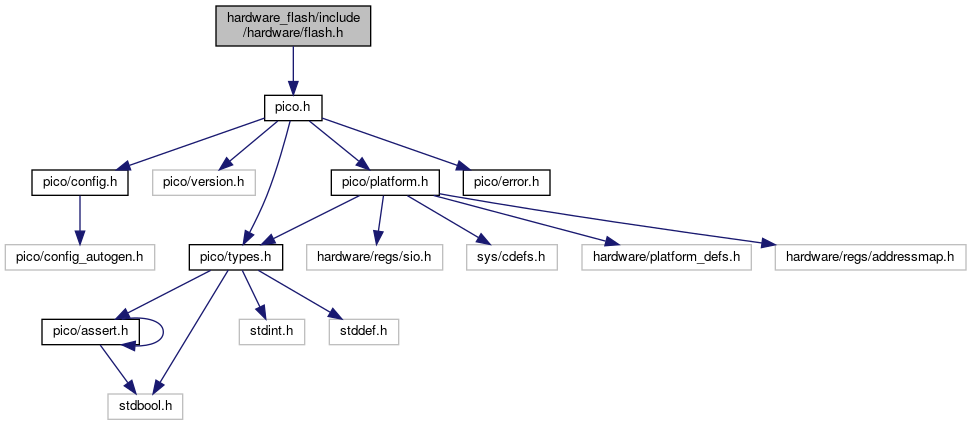Go to the source code of this file.
|
|
#define | PARAM_ASSERTIONS_ENABLED_FLASH 0 |
| |
|
#define | FLASH_PAGE_SIZE (1u << 8) |
| |
|
#define | FLASH_SECTOR_SIZE (1u << 12) |
| |
|
#define | FLASH_BLOCK_SIZE (1u << 16) |
| |
|
#define | FLASH_UNIQUE_ID_SIZE_BYTES 8 |
| |
|
| void | flash_range_erase (uint32_t flash_offs, size_t count) |
| | Erase areas of flash. More...
|
| |
| void | flash_range_program (uint32_t flash_offs, const uint8_t *data, size_t count) |
| | Program flash. More...
|
| |
| void | flash_get_unique_id (uint8_t *id_out) |
| | Get flash unique 64 bit identifierUse a standard 4Bh RUID instruction to retrieve the 64 bit unique identifier from a flash device attached to the QSPI interface. Since there is a 1:1 association between the MCU and this flash, this also serves as a unique identifier for the board. More...
|
| |
| void | flash_do_cmd (const uint8_t *txbuf, uint8_t *rxbuf, size_t count) |
| | Execute bidirectional flash commandLow-level function to execute a serial command on a flash device attached to the QSPI interface. Bytes are simultaneously transmitted and received from txbuf and to rxbuf. Therefore, both buffers must be the same length, count, which is the length of the overall transaction. This is useful for reading metadata from the flash chip, such as device ID or SFDP parameters. More...
|
| |
